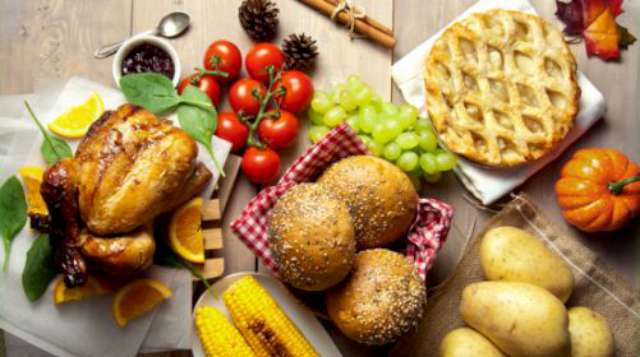
IDPH Urges Food Safety at Thanksgiving

Published on November 17 2023 4:06 pm
Last Updated on November 17 2023 4:07 pm
With the arrival of Thanksgiving and the season for family feasts, the Illinois Department of Public Health (IDPH) is advising Illinoisans to take precautions to protect everyone from foodborne illnesses, as well as those unwelcome guests, namely seasonal viruses.
Hosts can protect their guests by following basic food safety steps, including keeping hot foods hot, cold foods cold, and properly thawing frozen turkeys before roasting them.
In addition, with COVID-19 and RSV ticking up again this season, IDPH reminds hosts to provide good ventilation for large gatherings to safeguard against all the respiratory viruses that circulate at this time of year.
“All of us at IDPH wish our fellow Illinoisans a happy, festive and safe Thanksgiving holiday weekend,” said IDPH Director Sameer Vohra. “As we enjoy food, family, and friends, I want to remind everybody that we can prevent unhappy holiday outcomes by following proven food safety guidelines such as thawing frozen turkeys in the fridge and making sure the turkey and stuffing are thoroughly cooked to a safe temperature of 165° Fahrenheit.”
Dr. Vohra also stressed that hosts can enhance the safety of guests by providing proper indoor ventilation, encouraging good hand hygiene, and reminding guests to cover coughs and sneezes. If someone is feeling symptoms of a respiratory virus, it’s best to get tested and stay home if sick.
When it comes to food safety, the CDC offers valuable advice on how to safely cook a turkey and avoid serious foodborne illnesses such as Salmonella. The first step is to safely thaw the bird. When turkey begins to thaw, any bacteria that may have been present before freezing can begin to grow again. This is why food safety experts recommend thawing turkeys in the refrigerator. It takes about 24 hours for every five pounds of turkey to thaw in the refrigerator, so it can take three days to thaw a 15-pound bird.
If you don’t have time to use the refrigerator, you can do it in a sink of cold water (change water every 30 minutes), or in the microwave. Never thaw your turkey by leaving it out on the counter.
The four main steps for food safety are:
• Clean – Wash your hands with soap and water before, during, and after preparing your food, especially before and after handling turkey.
• Separate – Raw turkey and its juice can contaminate anything they touch. Be sure to handle your turkey correctly to prevent harmful germs from spreading to other food or your family and friends. Use one cutting board for raw turkey and a separate cutting board for produce, bread, and other foods that won’t be cooked. Wash cutting boards, utensils, dishes, and countertops with hot soapy water after preparing raw turkey and before you prepare the next item.
• Cook – Use a food thermometer to check if the turkey and stuffing has reached a safe internal temperature of 165° F. Take the temperature in three places – the thickest part of the breast, the innermost part of the thigh, and the innermost part of the wing. For stuffing, make sure the stuffing’s center reaches 165°F.
• Chill – Do not leave foods at room temperature more than two hours. After you are done eating, divide the remaining food into small containers and either refrigerate or freeze. Leftovers are safe in the refrigerator for up to four days. Reheat all leftovers to at least 165°F before serving or eating.
An easy rule to remember is to keep hot foods hot and cold foods cold. Get familiar with common food preparation mistakes such as thawing food on the counter or peeling fruits without washing them first.
Typical symptoms of foodborne illness include vomiting, diarrhea, and flu-like symptoms, which can start anywhere from hours to days after consuming contaminated food or drinks. Symptoms can last anywhere from a few hours to a few days.
It is important to stay hydrated when you have diarrhea and vomiting. Those at risk of more severe and even life-threatening foodborne illness include older adults, infants, young children, pregnant women, and people with weakened immune systems. If you become severely ill, or if you are at risk for more severe disease, seek care from a medical provider to ensure a proper diagnosis and appropriate illness management.
More information on Food Safety During the Holidays can be found on the IDPH website.












